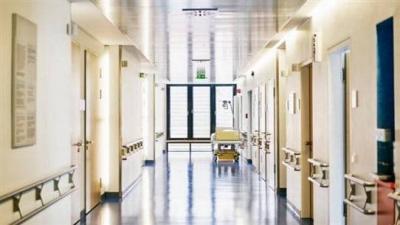Confusion prevails among the people, especially after the "monopoly" of traders has spiraled out of control, posing a threat to their lives that is no less dangerous than cholera or coronavirus. The rounds of the Ministry of Economy inspectors have failed to curb this situation, and the disparity in every commodity has widened, ranging between 10,000 and 15,000 Lebanese pounds. What concerns people even more is that food and health corruption has tightened its grip; they have not forgotten the poisoning of more than 20 citizens due to consuming rotten garlic. Although the Ministry of Health denied the existence of poisoning, more than 10 individuals were hospitalized for treatment, raising the question: is it poisoning or not? The "ministry's report raised suspicion and astonishment," according to a doctor who examined the cases, confirming the presence of food poisoning derived from eggs used in making mayonnaise, questioning "how is it possible that people suffer from severe vomiting and diarrhea, while the ministry's report is contradictory?"
What raises even more suspicion is that cases of poisoning have passed as if nothing happened, amidst a rise in food poisoning incidents due to several reasons, including power cuts, lack of refrigeration, and the use of expired materials. No one can deny the scale of food corruption today, especially after reports of frozen chicken being sold as fresh, and unknown-origin meats being mixed with quickly decaying vegetables, confirming that they have been irrigated with contaminated water. All of this puts people's health at stake, especially as the country is deep in the heart of a cholera outbreak.
The doctor does not hesitate to state, "The cost of treatment has become beyond the means of 80% of people; even an IV drip has become a privilege for those who can afford it, as all supplies are priced in dollars." Despite healthcare becoming a luxury beyond the common people's capacity, the outcry from the union of workers in public hospitals has resurfaced after the government reneged on its promises to grant them their rights and social assistance. This has led them to threaten a strike, primarily since they are now unable to reach their workplaces, according to Ali Karim, a health worker at Nabih Berri University Hospital, stressing that the situation of staff in public hospitals "is below zero, even though they are always on the front lines facing outbreaks and have never abandoned their roles." What they want is simply their rights; they demand the payment of their dues and the swift disbursement of social assistance for the months of November and December (2021) and from the beginning of 2022, similar to public administrations.
This is not the first time that public hospital workers have issued warnings; each time they stage a protest and threaten a strike, they receive promises of support and payment of what is possible to enable them to continue providing health services, yet the truce fails each time. Karim emphasizes, "We do not want to take measures that harm patients; what we want is our rights, not more. We have never slackened in our roles, but patience has its limits. Our patience is exhausted; our pockets are empty, and there is no money to reach work." He believes that "the solution is simple: it lies in the prompt release of financial entitlements and returning us to the benevolence of general administration."
It seems that the cry has reached the health sector, especially on the brink of cholera's spread. Will this sector withstand the stripping of rights of its workers? Or will the Ministry of Health address the situation to confront the new epidemic?




